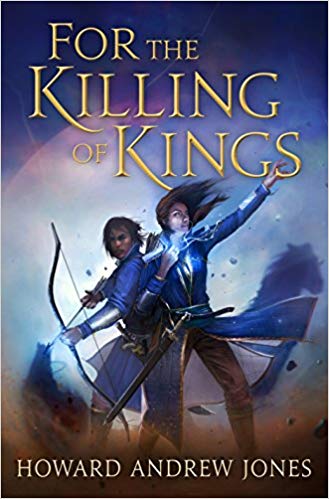 For the Killing of Kings (The Ring-Sworn Trilogy, #1) by Howard Andrew Jones
For the Killing of Kings (The Ring-Sworn Trilogy, #1) by Howard Andrew Jones Format: audiobook
Source: purchased from Audible
Formats available: hardcover, ebook, audiobook
Genres: epic fantasy
Series: Ring-Sworn Trilogy #1
Pages: 368
Published by St. Martin's Press on February 19, 2019
Purchasing Info: Author's Website, Publisher's Website, Amazon, Barnes & Noble, Kobo, Bookshop.org
Goodreads
A cross between Zelazny's Chronicles of Amber and The Three Musketeers, For the Killing of Kings is the first in a new fantasy trilogy by Howard Andrew Jones.
Their peace was a fragile thing, but it had endured for seven years, mostly because the people of Darassus and the king of the Naor hordes believed his doom was foretold upon the edge of the great sword hung in the hall of champions. Unruly Naor clans might raid across the border, but the king himself would never lead his people to war so long as the blade remained in the hands of his enemies.
But when squire Elenai's aging mentor uncovers evidence that the sword in their hall is a forgery, she's forced to flee Darassus for her life, her only ally the reckless, disillusioned Kyrkenall the archer. Framed for murder and treason, pursued by the greatest heroes of the realm, they race to recover the real sword, only to stumble into a conspiracy that leads all the way back to the Darassan queen and her secretive advisers. They must find a way to clear their names and set things right, all while dodging friends determined to kill them - and the Naor hordes, invading at last with a new and deadly weapon.
Howard Andrew Jones' powerful world-building brings this epic fantasy to life in this first book of his new adventure-filled trilogy.
My Review:
Fair warning – this is definitely going to be one of those mixed feelings reviews.
This is a story about betrayal. Over and over and over again. Every time our heroes think they have things figured out, yet another enemy crawls out of the woodwork and they are on the run, again, even when they aren’t quite sure who, or what, they are running from.
It makes for a fine story in true epic fantasy fashion, of the “out of the frying pan into the fire” tradition. Which definitely makes for page-turning adventure.
One of the interesting things about this story is that the heroes are never quite sure who their enemy is, or why their enemy is their enemy, or, and perhaps even more important for this series opener, just how long their enemy has been plotting in the background.
This is one of those stories where nothing is as it seems. And the fish has already long rotted from the head down. Discovering the rot drives the action, and drives it hard, from the tip of the iceberg beginning to the “things are always darkest just before they turn completely black” ending.
That isn’t really an ending. The story continues. And does it ever need to!
Escape Rating B: This is one of the rare books that I listened to all the way through. I have the eARC, and I thought I would switch to it a few times, but I never actually did. For some reason, this one worked better for me in audio – in spite of some serious problems that I’ll get to in a minute.
In the end, I think that while I was enjoying the story more than enough to finish – I didn’t feel compelled to read faster. I enjoyed the journey more than the destination. (Also, I didn’t have anything set for my next listen that felt like it was calling my name.)
About the audio. On the one hand, it felt like the choice was made to use a female narrator in an attempt to make the squire Elenai the central character, so that this would read as a heroine’s journey. And Elenai is one of the central characters. But she is the only central character who is female, at least so far, and most of the point of view characters or prominent characters are male. One of whom, in particular, exhibits an awful lot of blatant “male gaze”. In the end, Elenai is a point of view but far from the only or predominant one.
The real problem with the audio is that the narrator mispronounces quite a bit. The most glaring mispronunciation was the substitution of “calvary” for “cavalry”. It jarred me every single time and was not the only one. The word “ebullience” was another. But the calvary/cavalry switch was just SO WRONG. While people do this all the time in real life, I expect better from a professional narrator. Epic fail.
Ironically, the story is not an epic fail, but it certainly is the start of an epic. There are a lot of epic fantasies that begin with an aging hero training the future hero. Eventually that aging hero is killed or incapacitated in the course of the story (Merlin, Dumbledore, Obi-Wan, etc., etc., etc.) It’s a fine tradition, but it gets turned on its head a bit in this particular epic.
The story here seems to be about the failing and falling of an entire generation of older heroes who either rested on their laurels or exiled themselves when their kingdom fell away from their ideals, leaving the training of the next generation to those who remained behind, the corrupt and the incompetent – but mostly the corrupt.
This turns out to be a story about finding the rot, cutting it out, and returning to the ideals that once kept their kingdom strong – even if the old guard doesn’t manage to live to see it.
So this first book in the series features two of that younger generation, one who has not finished training and has not yet been corrupted (Elenai) and one who thought that the new way was the right way, but has been redeemed before he got too far down that path (Rylin).
Their perspectives are quite different. Elenai was still in the hero-worshiping stage of her training, and it’s been eye-opening for her to discover that her heroes are flawed but still trying – and that she is now one of them. Rylin, on the other hand, began looking for glory, and in finding it has discovered that it is empty. And that honor and duty are what truly matters.
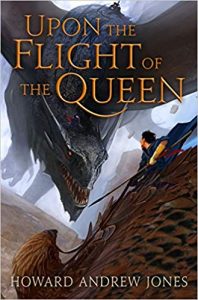 In the end, I enjoyed the story, but was left with the strong impression that it was a lesser version of the marvelous The Ruin of Kings. For the Killing of Kings, like The Ruin of Kings, isn’t just the title of the book. It’s the name of a sword – and a sword with an obviously very similar purpose and destiny at that. But The Ruin of Kings was such an awesome book that even a lesser version of it is well worth reading.
In the end, I enjoyed the story, but was left with the strong impression that it was a lesser version of the marvelous The Ruin of Kings. For the Killing of Kings, like The Ruin of Kings, isn’t just the title of the book. It’s the name of a sword – and a sword with an obviously very similar purpose and destiny at that. But The Ruin of Kings was such an awesome book that even a lesser version of it is well worth reading.
Another fair warning, For the Killing of Kings, while it doesn’t exactly end on a cliffhanger, it does end on a brief pause between battles. If you get caught up in this story, as I did, you’ll be on tenterhooks for the next book in the Ring-Sworn Trilogy, Upon the Flight of the Queen, due out in November 2019.

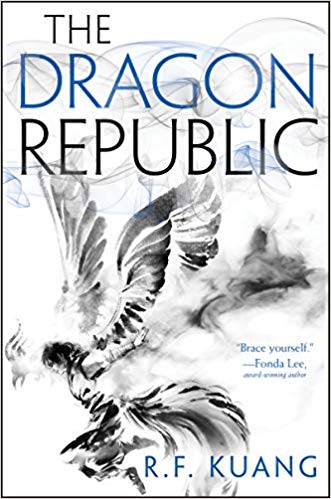 The Dragon Republic (The Poppy War, #2) by
The Dragon Republic (The Poppy War, #2) by 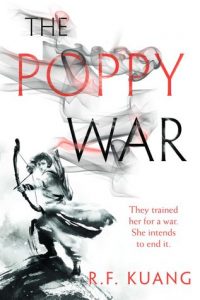 I thought that the first book in this series,
I thought that the first book in this series, 
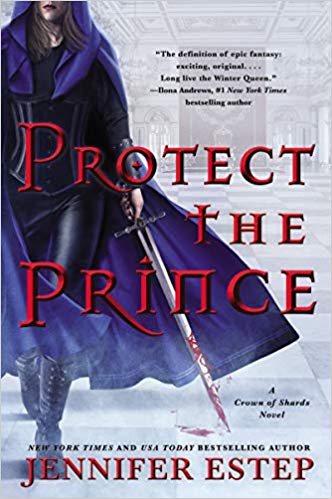 Protect the Prince (Crown of Shards, #2) by
Protect the Prince (Crown of Shards, #2) by 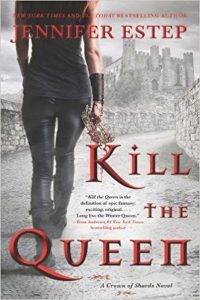 That truism works in multiple ways in Protect the Prince. After all, this is the second book in the
That truism works in multiple ways in Protect the Prince. After all, this is the second book in the 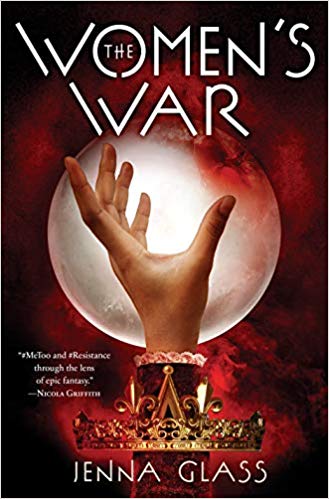 The Women's War (Women's War, #1) by
The Women's War (Women's War, #1) by 
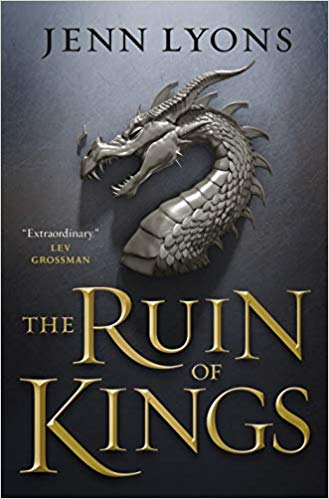 The Ruin of Kings (A Chorus of Dragons, #1) by
The Ruin of Kings (A Chorus of Dragons, #1) by 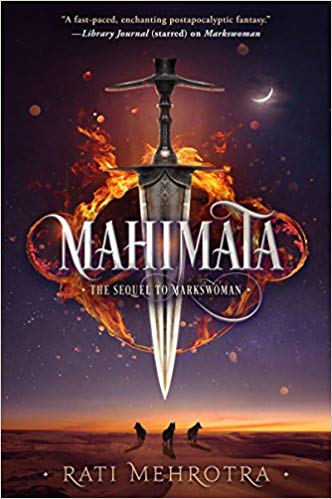 Mahimata by
Mahimata by 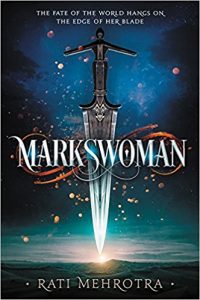 The story in Mahimata is a continuation of the story from
The story in Mahimata is a continuation of the story from 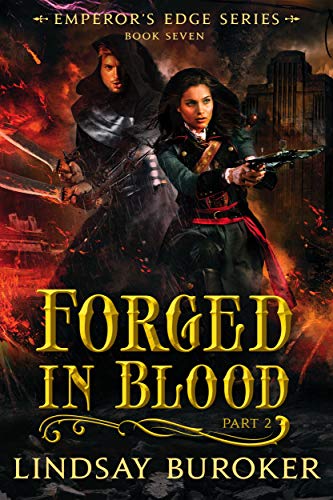 Forged in Blood II (The Emperor's Edge, #7) by
Forged in Blood II (The Emperor's Edge, #7) by 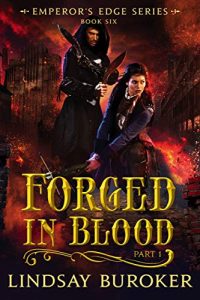 (Fair warning, this review will contain spoilers for Forged in Blood I. It would be equally impossible to talk at all about this book without talking about that book. They are pretty much one story, and everything that happens here is dependent on what happened there. Also, Captain Obvious being very obvious, don’t start the series here!)
(Fair warning, this review will contain spoilers for Forged in Blood I. It would be equally impossible to talk at all about this book without talking about that book. They are pretty much one story, and everything that happens here is dependent on what happened there. Also, Captain Obvious being very obvious, don’t start the series here!)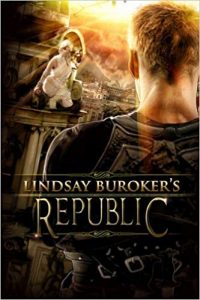 Realistically, it would not be possible for a series that had this much adventure – including misadventure, in it without a butcher’s bill to be paid by the company. That price that they paid felt right, proper and necessary – and provided a much needed bit of poignancy to the ending.
Realistically, it would not be possible for a series that had this much adventure – including misadventure, in it without a butcher’s bill to be paid by the company. That price that they paid felt right, proper and necessary – and provided a much needed bit of poignancy to the ending.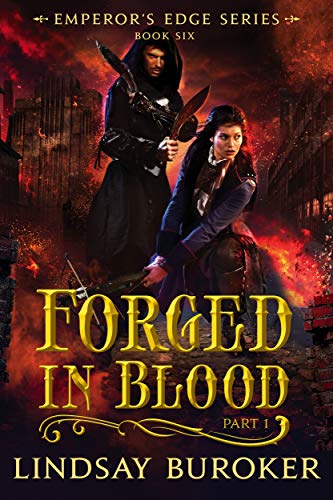 Forged in Blood I (The Emperor's Edge, #6) by
Forged in Blood I (The Emperor's Edge, #6) by 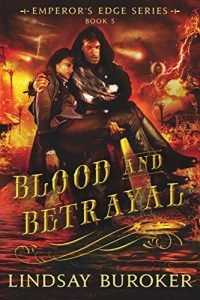 But back then, I raced through the first four books in the series (
But back then, I raced through the first four books in the series (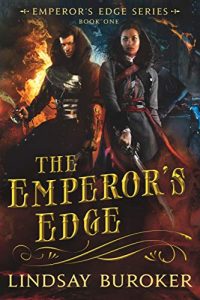 So Forged in Blood I is the beginning of the end. Start with The Emperor’s Edge and get to know this amazingly awesome – just ask some of them – band of big damn heroes. And end this part of the story on pins and needles, not merely wondering but actively worrying whether all of them will get out of this caper alive.
So Forged in Blood I is the beginning of the end. Start with The Emperor’s Edge and get to know this amazingly awesome – just ask some of them – band of big damn heroes. And end this part of the story on pins and needles, not merely wondering but actively worrying whether all of them will get out of this caper alive.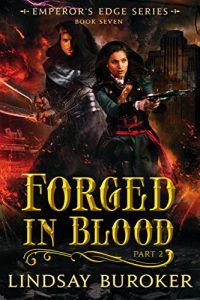 This is a series where the worldbuilding has gotten deeper as it goes, as have the chasms that our heroes must leap across in order to stay alive and one step ahead of their many, many pursuers. The pace never lets up – leaving the reader breathless with anxiety and anticipation at the end.
This is a series where the worldbuilding has gotten deeper as it goes, as have the chasms that our heroes must leap across in order to stay alive and one step ahead of their many, many pursuers. The pace never lets up – leaving the reader breathless with anxiety and anticipation at the end.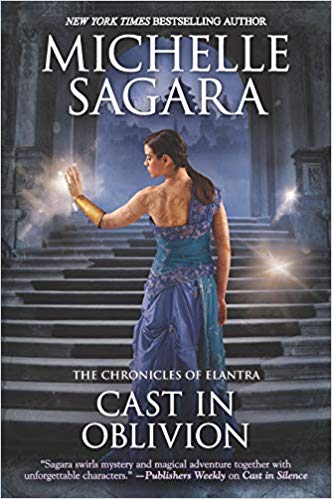 Cast in Oblivion (The Chronicles of Elantra, #14) by
Cast in Oblivion (The Chronicles of Elantra, #14) by 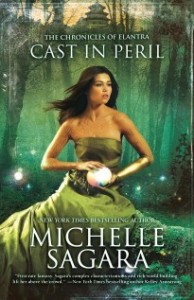 The
The 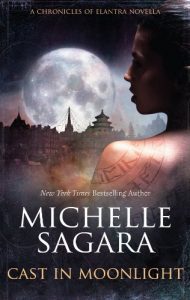 But in the end what draws me back to this series is the character at its heart, Kaylin Nera. She began the series in
But in the end what draws me back to this series is the character at its heart, Kaylin Nera. She began the series in 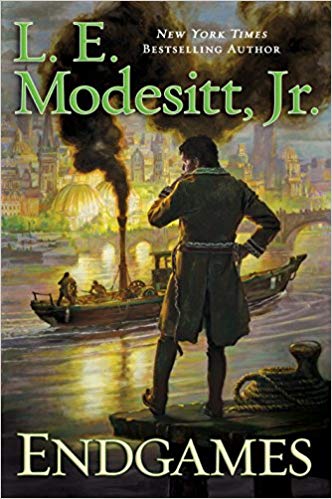 Endgames (Imager Portfolio #12) by
Endgames (Imager Portfolio #12) by 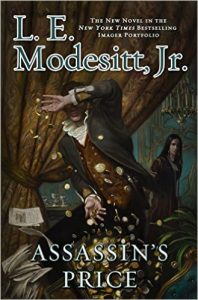 The events in Endgames directly follow the events in the previous book,
The events in Endgames directly follow the events in the previous book, 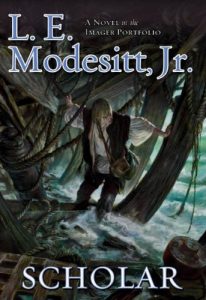 But Endgames is certainly the ending of this middle sequence of the series. Interested readers can begin the
But Endgames is certainly the ending of this middle sequence of the series. Interested readers can begin the